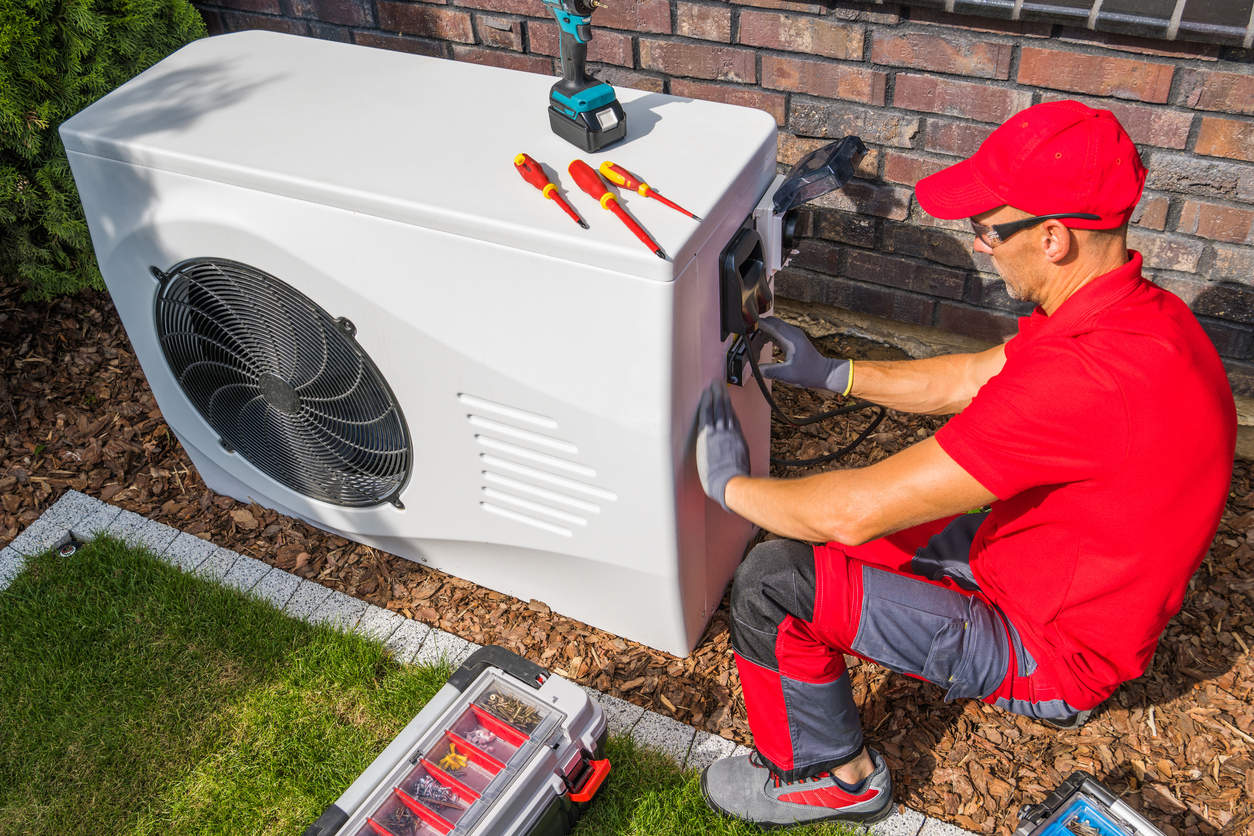If you’re wondering if a heat pump can replace an air conditioner, the short answer is yes – but that’s just the tip of the iceberg. Heat pumps are incredibly versatile HVAC systems that can both cool and heat your home, making them a year-round solution for your comfort needs. In this blog post, we’ll dive into the world of heat pumps, explaining how they work and why they’re a fantastic choice for homeowners looking to stay comfortable in every season.
Understanding the Magic of Heat Pumps
To grasp the concept of a heat pump, imagine a device that can move heat from one place to another, much like a magician pulling a rabbit out of a hat. However, instead of rabbits, heat pumps extract warmth from the air or the ground and release it where you need it most—inside your home during the winter and outside during the summer.
Heat Pumps in Winter: Keeping You Warm
When the cold winter chill sets in, your heat pump acts like a heat transporter, drawing in heat from the outside air or the ground and transferring it into your home. Even in freezing temperatures, there’s still some heat to be found. The system’s magic lies in its ability to efficiently extract this heat and release it indoors. It’s like having a cozy fireplace that never runs out of wood.
Heat Pumps in Summer: Keeping You Cool
Now, let’s fast forward to summer when the scorching sun has you seeking refuge indoors. Your heat pump can reverse the process, acting as a cooling machine. It removes the warm air from your home and releases it outside, leaving the indoors refreshingly cool. In essence, it’s your trusty air conditioner, ensuring you stay comfortable during the hottest months.
Year-Round Benefits of a Heat Pump
Energy Efficiency: Heat pumps are known for their energy efficiency. They use the extracted heat from the air or ground, making them much more energy-efficient than traditional heating systems that generate heat.
Cost Savings: Due to their efficiency, heat pumps can significantly reduce your energy bills, offering substantial savings over time. Plus, their dual heating and cooling capabilities mean you only need one system for year-round comfort.
Environmental Friendliness: Heat pumps are eco-friendly. They consume less energy and produce fewer greenhouse gas emissions compared to conventional heating and cooling systems, contributing to a greener planet.
How to Make the Most of Your Heat Pump
Choosing the right heat pump for your home can be a daunting task, but that’s where TRS Heating & Cooling comes in. Our experts can recommend the perfect heat pump that suits your home’s needs and size. What’s more, we can advise you on how to take advantage of the Canada Greener Homes Grant, which covers energy-efficient upgrades like heat pumps. It’s a win-win situation—lower energy bills and a more comfortable home.
What you’re looking at is more than a replacement for your air conditioner; it’s a year-round HVAC solution that can both cool and heat your home efficiently and cost-effectively. If you’re ready to make the switch to a heat pump or want to learn more about how it can benefit your home, don’t hesitate to contact TRS Heating & Cooling. We’re here to keep you comfortable every season of the year.

